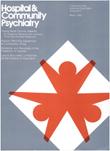Reliability and Rationality in the Prediction of Suicide
Abstract
The reliability and validity of psychiatrists' predictions of a patient's potential for suicide are increasingly being questioned, both by mental health professionals and by the courts. The authors describe a study conducted in 1978 to measure the reliability with which a team of mental health professionals assessed suicidal risk in a group of 16 patients seen in videotaped interviews. They found that the highest reliability was on an item that assessed the seriousness of the patient's past suicide attempts; the lowest reliability came in assessing the patient's risk of death from accidents, homicide, or neglect of self. Over-all, the authors say, the clinicians made their judgments based on rational and consistent evaluation of the data.
Access content
To read the fulltext, please use one of the options below to sign in or purchase access.- Personal login
- Institutional Login
- Sign in via OpenAthens
- Register for access
-
Please login/register if you wish to pair your device and check access availability.
Not a subscriber?
PsychiatryOnline subscription options offer access to the DSM-5 library, books, journals, CME, and patient resources. This all-in-one virtual library provides psychiatrists and mental health professionals with key resources for diagnosis, treatment, research, and professional development.
Need more help? PsychiatryOnline Customer Service may be reached by emailing [email protected] or by calling 800-368-5777 (in the U.S.) or 703-907-7322 (outside the U.S.).



